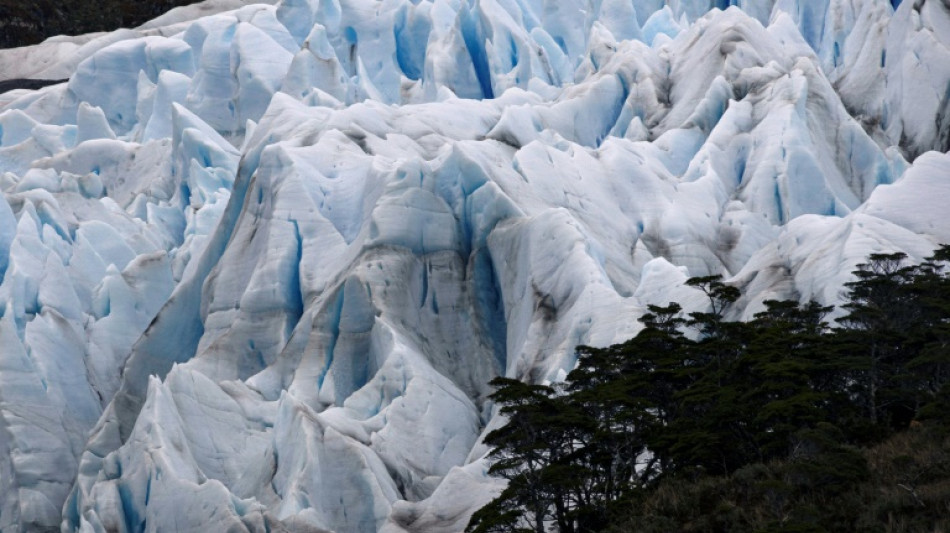
-
 Forest Champions League dreams hit after Brentford defeat
Forest Champions League dreams hit after Brentford defeat
-
'Resilient' Warriors aim to close out Rockets in bruising NBA playoff series

-
 US expects Iran talks but Trump presses sanctions
US expects Iran talks but Trump presses sanctions
-
Baffert returns to Kentucky Derby, Journalism clear favorite

-
 Top Trump security official replaced after chat group scandal
Top Trump security official replaced after chat group scandal
-
Masked protesters attack Socialists at France May Day rally

-
 Mumbai eliminate Rajasthan from IPL playoff race with bruising win
Mumbai eliminate Rajasthan from IPL playoff race with bruising win
-
McDonald's profits hit by weakness in US market

-
 Rio goes Gaga for US singer ahead of free concert
Rio goes Gaga for US singer ahead of free concert
-
New research reveals where N. American bird populations are crashing

-
 Verstappen late to Miami GP as awaits birth of child
Verstappen late to Miami GP as awaits birth of child
-
Zelensky says minerals deal with US 'truly equal'
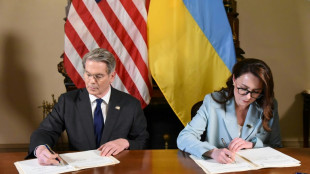
-
 Weinstein lawyer says accuser sought payday from complaint
Weinstein lawyer says accuser sought payday from complaint
-
Police arrest more than 400 in Istanbul May Day showdown

-
 Herbert named head coach of Canada men's basketball team
Herbert named head coach of Canada men's basketball team
-
'Boss Baby' Suryavanshi falls to second-ball duck in IPL

-
 Shibutani siblings return to ice dance after seven years
Shibutani siblings return to ice dance after seven years
-
300,000 rally across France for May 1, union says

-
 US-Ukraine minerals deal: what we know
US-Ukraine minerals deal: what we know
-
Top Trump official ousted after chat group scandal: reports

-
 Schueller hat-trick sends Bayern women to first double
Schueller hat-trick sends Bayern women to first double
-
Baudin in yellow on Tour de Romandie as Fortunato takes 2nd stage

-
 UK records hottest ever May Day
UK records hottest ever May Day
-
GM cuts 2025 outlook, projects up to $5 bn hit from tariffs

-
 Thousands of UK children write to WWII veterans ahead of VE Day
Thousands of UK children write to WWII veterans ahead of VE Day
-
Top Trump official exiting after chat group scandal: reports

-
 Madrid Open holder Swiatek thrashed by Gauff in semis
Madrid Open holder Swiatek thrashed by Gauff in semis
-
Sheinbaum says agreed with Trump to 'improve' US-Mexico trade balance

-
 US veteran convicted of quadruple murder to be executed in Florida
US veteran convicted of quadruple murder to be executed in Florida
-
UK counter terrorism police probe Irish rappers Kneecap

-
 S. Korea crisis deepens with election frontrunner retrial, resignations
S. Korea crisis deepens with election frontrunner retrial, resignations
-
Trump administration releases report critical of youth gender care

-
 IKEA opens new London city centre store
IKEA opens new London city centre store
-
Police deploy in force for May Day in Istanbul, arrest hundreds

-
 Syria Druze leader condemns 'genocidal campaign' against community
Syria Druze leader condemns 'genocidal campaign' against community
-
Prince Harry to hear outcome of UK security appeal on Friday

-
 Microsoft raises Xbox prices globally, following Sony
Microsoft raises Xbox prices globally, following Sony
-
US stocks rise on Meta, Microsoft ahead of key labor data
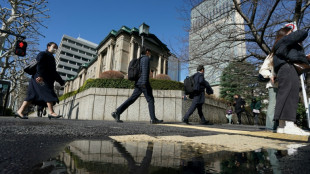
-
 Toulouse injuries mount as Ramos doubtful for Champions Cup semi
Toulouse injuries mount as Ramos doubtful for Champions Cup semi
-
Guardiola glad of Rodri return but uncertain if he'll play in FA Cup final

-
 Ruud sails past Medvedev into Madrid Open semis
Ruud sails past Medvedev into Madrid Open semis
-
'Not a commodity': UN staff rally over deep cuts

-
 Flintoff proud as Afghan refugee protege plays for Lancashire second team
Flintoff proud as Afghan refugee protege plays for Lancashire second team
-
Peruvian cardinal accused of abuse challenges late pope's sanction

-
 Trans women barred from women's football by English, Scottish FAs
Trans women barred from women's football by English, Scottish FAs
-
Oil prices drop, stocks diverge amid economic growth fears
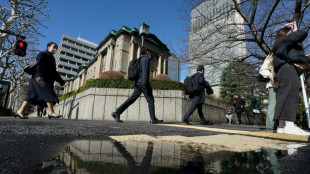
-
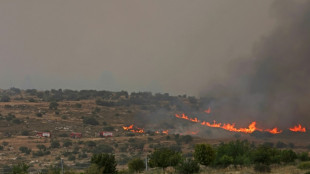 Israel brings fire near Jerusalem 'under control', reopens roads
Israel brings fire near Jerusalem 'under control', reopens roads
-
Lopetegui appointed coach of Qatar

-
 UK counter-terrorism unit probes rappers Kneecap but music stars back band
UK counter-terrorism unit probes rappers Kneecap but music stars back band
-
Yamal heroics preserve Barca Champions League final dream


Mountain glaciers hold less ice than thought, and that's bad news
Mountain glaciers shrinking due to climate change are less voluminous than previously understood, putting millions who depend on them for water supply at risk, researchers reported Monday.
Glaciers in the Andes Mountains of South America, for example, were found to store 23 percent less fresh water compared to earlier estimates, they wrote in the journal Nature Geoscience.
Bolivia's largest city La Paz, with more than two million inhabitants, is highly dependent on glacier runoff for agriculture and as a buffer against drought.
As the slow-moving rivers of ice lose more mass through melt-off than they gain with fresh snow, water flows become irregular -- including periods of flooding -- and eventually dry up, first in low altitude mountains, and eventually in higher ones.
Water from glaciers flowing into rivers is also crucial for hydropower generation and agriculture.
"The finding of less ice is important and will have implications for millions of people living around the world," said co-author Mathieu Morlighem, an Earth sciences professor at Dartmouth University.
Some regions, including the Himalayan mountains, were found to have up to a third more ice than thought, "which will reduce the pressure on water resources," lead author Romain Millan, a post-doctoral researcher at the Institute of Environmental Geosciences in Grenoble, France, told AFP.
Globally, however, the satellite-based survey covering 98 percent of the world's glaciers -- around 250,000 -- found that the volume of all glaciers combined, above and below sea level, was 11 percent smaller than earlier calculations.
One silver lining is the implications for sea level rise, projected to be among the most devastating consequences of global warming.
Throughout the 20th century, melting glaciers was one of the main causes of rising ocean levels, along with the expansion of sea water as it warms.
- Like thick syrup -
The new estimate lowers the potential contribution of glaciers to sea level rise from about 33 to 26 centimetres (13 to 10 inches).
But that reduction -- while not insignificant -- is incidental compared to the impact of melting ice sheets, which have become the main cause of rising sea levels in the 21st century.
The kilometres-thick blankets of ice atop West Antarctica and Greenland hold enough frozen water to lift oceans some 13 metres.
Despite their apparent immobility, glaciers are constantly on the move, pushed by gravity.
"We generally think about glaciers as solid ice that may melt in summer, but ice actually flows like thick syrup under its own weight," said Morlighem.
"Using satellite imagery, we are able to track the motion of these glaciers from space at the global scale."
To create an ice flow database, the researchers studied more than 800,000 pairs of before-and-after satellite images of glaciers, including large ice caps, narrow alpine glaciers, slow valley glaciers and fast tidewater glaciers.
The high-resolution images, captured by NASA and European Space Agency satellites, required more than one million hours of computational time on super-computers in Grenoble.
Scientists not involved in the research described it as a "first class study", and a "great new inventory" of how much ice there is worldwide.
"Because there is less ice stored in the world's glaciers than we had thought they will disappear earlier than expected, and so the communities that depend on their ice and water will experience the worst effects of climate change sooner," said Andrew Shepherd, director of the Centre for Polar Observation and Modelling at the University of Leeds.
"In every corner of the planet, the seasonality of river water levels will change dramatically as glaciers melt away."
H.E.Young--AMWN